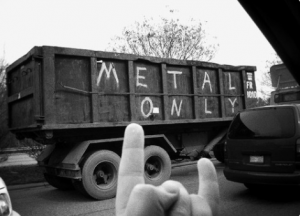Asteria Lending Inc. Unit 306 3/F 6762 National Life Insurance Bldg. San Lorenzo, Ayala Ave. Makati City
We’re Open: Mondays – Fridays
Office Hours:
9:00 am – 7:00 pm
Email:
[email protected]

Chinese and Philippine companies have signed a memorandum of understanding to build a $4.4 billion integrated steel plant at Misamis Oriental in northern Mindanao, the Department of Trade and Industry said late Friday.

HBIS Group is a state-owned company based in China’s Hebei province that produces appliance grade and automotive grade steel products. It is described as the second largest steelmaker in China and the third largest in the world.
Huili Fund is a private equity firm with the headquarter in Beijing that invests in real estate, finance, and industries. In 2017, the company signed a letter of intent with the Board of Investments (BOI), showing its willingness to partner with the Philippines and private sector entities.
Steel Asia will act as the domestic partner for the project. The company is presently expanding its services to boost capacity and for more efficient production.
The project will be built on about 300-hectare property inside the PHIVIDEC Industrial estate.
This will allow the country to produce essential iron and steel products that can be further manufactured into metal sheets and bards, nails, staple wires, paper clips, and construction-grade products such as wire rod and wire mesh.
China’s HBIS Group and Huili Investment Fund Management and the Philippine’s Steel Asia Manufacturing Corporation and PHIVIDEC Industrial Authority signed the memorandum to develop the Philippine Iron and Steel Project in two phases.
It follows Chinese President Xi Jinping’s state visit to Manila last month, the first such visit by a Chinese leader in 13 years, which saw 29 memorandums signed, covering areas such as cooperation and infrastructure development, although details remained vague.
Tensions between both China and Philippines had mounted for many years due to a dispute over ownership of large swaths of territory in the South China Sea, with the Permanent Court of Arbitration supporting the Philippines’ claims in a ruling in July 2016.
However, rather than press the point, the then-recently inaugurated Duterte said he would instead work with China to jointly develop the 4 trillion cubic feet of untapped gas reserves that the U.S. Energy Information Administration estimates lies within Philippine territory.
The first phase, costing about $3 billion, will result in production capacities of 4.5 million mt/mt of hot-rolled coil and 600,000 mt/year of slabs. Under phase two, steel production capacity will rise to 8 million mt/year.
The construction and ramp-up period are scheduled to span from three to five years, the DTI said.
The project will reduce the Philippines’ trade deficit as total domestic and export sales of slabs and hot rolled coils from the project will amount to Philippine Pesos 144.279 billion ($2.72 billion), the country’s Board of Investments said.
“This will also help us reduce the trade deficit by as much as $2.3 billion in Phase 1 and up to $4.4 billion in succeeding phases, as we will now produce important items that we import now” DTI secretary Ramon Lopez said.
“The project will allow the country to substantially produce basic iron and steel products that will also further supply downstream steel products, like metal sheets and bars, including nails, staple wires, and paperclips as well as construction-grade products steel products such as wire rod and wire mesh. It will also support Philippine’s bid to be a major producer of high-quality and safe steel products by 2030,” Lopez said.
State-owned HBIS Group is a big steelmaker in China while Huili Fund is a private equity firm specializing in real estate, finance, and industries. Steel Asia is a big rebar producer in the Philippines with a domestic production capacity of 2.3 million mt/year from six local mills.
It will take up to two to five years to build the factory in Cagayan de Oro City, Mindanao. Annual production is expected to reach eight million tons of iron and steel.
The Philippine Minister of Trade and Industry Ramon Lopez said it is by far the most massive investment project involving China and the Philippines.
The Philippines’ iron and steel imports grew by 39.4% year-on-year between January and October this year as the government pursues its major “Build, build, build” infrastructure drive, and so the government has warmly welcomed China’s investment in the sector. Importation of steel and iron were valued at $4.91 billion from January to October, making it the country’s fifth import by commodity group.
While China’s local steel production is expected to peak at 886 million metric tons this year, a government drive to encourage higher environmental standards is leading many producers to seek better opportunities abroad, with Southeast Asia a major market for development.
This project is being touted to help the country achieve the “Steel Dream,” promoting the overall development of the manufacturing industry, further increasing export capacity and helping reduce the trade deficit.
With this integrated steelmaking facility, Philippines will be able to capture, through this and succeeding phases of the project, large part of the value for the manufacture and assembly of automotive assembly, appliances, shipbuilding, construction materials, heavy equipment manufacturing, among others.